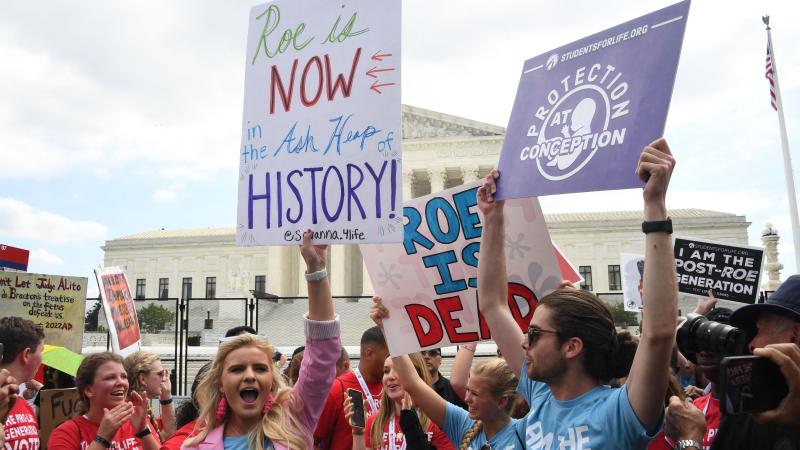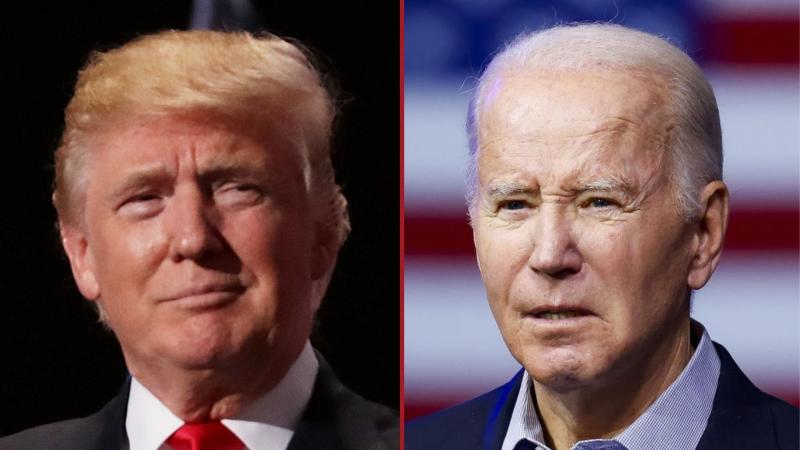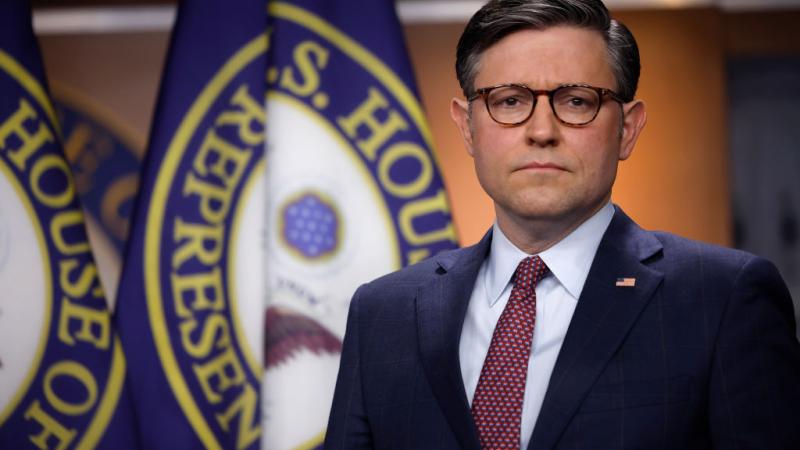Barrett stays cool for second day of questioning from Senators concerned about Obamacare
The nominee will face her final round of questions on Wednesday
On her second consecutive day of questioning from the Senate Judiciary Committee, Supreme Court nominee Judge Amy Coney Barrett remained largely cool under pressure as she was asked a series of detailed questions about constitutional technicalities, in addition to her specific and politically-oriented stances on various case-law and policy matter.
The Democrats
Joe Biden's running mate Sen. Kamala Harris during a part of her time on Wednesday pressed Barrett on the topic of climate change, asking whether Barrett thinks that climate change is occurring and "threatening the air we breathe and the water we drink."
"You have asked me a series of questions like that are completely uncontroversial like whether COVID-19 is infectious, whether smoking causes cancer and then trying to analogize that to eliciting an opinion...from me that is on a very contentious matter of public debate and I will not do that," Barrett said. "I will not express a view on a matter of public policy especially one that is politically controversial because that's inconsistent with the judicial role as I have explained."
Senator Amy Klobuchar (D-Minnesota) used her time during the second day of to address some of the finer points on the judge's resume ahead of the vote to confirm her to the highest court in the land.
Klobuchar, a contender for the Democratic nomination for president and vice-president this cycle, spent her time questioning Barrett about her view on the Affordable Care Act and how it interacts with the view held by Republican lawmakers.
Klobuchar repeatedly asked Barrett to confirm or deny whether, prior to her nomination, she understood that President Trump was in search of a nominee who would overturn the Affordable Care Act from the bench. Barrett has said consistently over the past day-and-a-half that she harbors no resentments toward Obamacare, adding today that she was aware, as a general matter, that, "as a matter of public discourse," many Republicans do not feel fondly toward the law.
Today and yesterday, Barrett has offered the Senate Judiciary committee, and therefore the American people viewing her hearing, a lesson on the legal doctrine of severability, which generally means that a court will strike down a single provision of a law without undermining the entirety of the law.
The reason for Barrett's explanation of the legal doctrine is because next month, the Supreme Court will hear arguments surrounding the legality of the Affordable Care Act, which, depending on the court's ruling, could be imperiled.
Barrett would not share with the panel how she would vote on the case, but said, "the presumption is always in favor of severability."
Senator Dianne Feinstein (D-Calif.), the ranking committee member, displayed a soft edge during the beginning of her question period by, again, complementing the judge's family, who have been present each day at the outset of the hearing. The senator continued by asking Barrett about her opinions on a number of previously litigated cases, primarily pertaining to issues of voter rights.
Barrett by-and-large declined to answer specific case hypotheticals, reminding the panel of her commitment to the "Ginsburg Rule of Judicial Independence," which was discussed at length on Tuesday.
The Republicans
During his second and final round of questions, committee chairman Lindsey Graham continued his praise of the nominee for being a role model for conservative women -- possibly having to do with a last-minute appeal he is making to the voting women of his home state of South Carolina, where he is currently entering the final stretch of an unexpectedly competitive reelection race.
Despite the fact that, in his view, Barrett's appointment may not be universally celebrated, she is a rare example of someone who can "shatter" the "concrete barrier around conservative women," who Graham feels are not heavily represented in the modern media or cultural landscape.
"I have never been more proud of the nominee than I am of you," Graham told Barrett. "This is history being made, folks."
He continued by praising Barrett's position on abortion, “This is the first time in American history that we’ve nominated a woman who is unashamedly pro-life and embraces her faith without apology, and she is going to the court," which complemented a brief monologue the senator gave about his own attempts at abortion legislation.
Barrett is facing a final round of questions Wednesday from the Senate Judiciary Committee, with Democrats on the panel expected to question her about such key issues as the Affordable Care Act, abortion and voting rights.
On Tuesday, the first day of questions, Barrett, like many past nominees, repeatedly declined to speculate on how she might rule in hypothetical cases that could be presented to her following confirmation.
GOP Sen. Lindsey Graham, the committee's chairman, concluded Tuesday's hearing by commending the participants for what he called a "good interchange."
"I hope the American people understand that this is the way that it should be," said Graham, who was notably stirred in the days following the repeatedly hostile exchanges that took place during now-SCOTUS justice Brett Kavanaugh's confirmation hearings in 2018.
Graham has said he expects a committee vote by Oct. 22. If the GOP-led committee votes in favor of recommending Barrett to the high court, as expected, she would then face a full Senate vote, which she is also expected to pass. Republicans have 53 of the 100 Senate seats.















